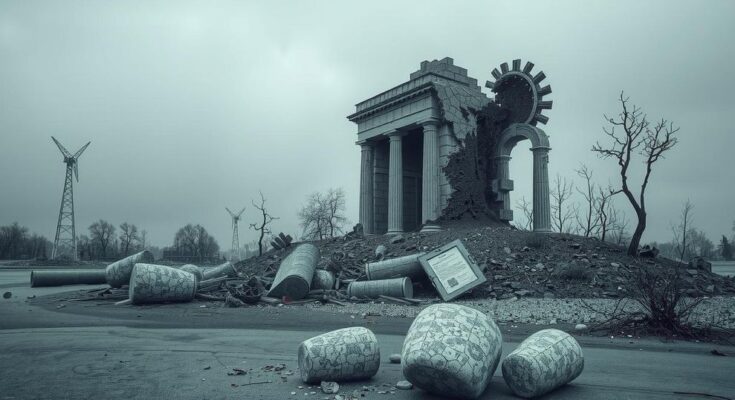The UN reports nearly 3,000 deaths in Goma, DR Congo, after rebel groups seized control amidst severe fighting. Approximately 2,000 bodies had been collected, with many more unaccounted for. The Alliance Fleuve Congo (AFC) declared a ceasefire, which the Congolese government dismissed as false. Tensions persist, highlighting the ongoing humanitarian crisis in the region.
The United Nations has reported nearly 3,000 fatalities stemming from recent conflict in Goma, a city in the eastern Democratic Republic of Congo, where rebels have gained control after intense fighting with the Congolese army. Vivian van de Perre, deputy head of the UN mission in DR Congo, stated that approximately 2,000 bodies have been recovered from the streets, with an additional 900 remaining in local morgues. She noted that this number is likely to rise due to many decomposing bodies still uncollected in various areas.
Following days of violence, the rebel coalition, known as the Alliance Fleuve Congo (AFC), which includes the M23 group, declared a ceasefire. The coalition stated this was in response to the dire humanitarian situation exacerbated by the Congolese government. However, the government disregarded the ceasefire, labeling it a “false communication,” as reports of continued heavy fighting emerged from the South Kivu province.
The conflict in DR Congo has persisted for decades, driven by ethnic conflicts and battles for land and mineral resources, resulting in one of the world’s largest humanitarian crises. Accusations from DR Congo, the United States, and UN experts suggest that neighboring Rwanda is supporting the M23 group, primarily composed of ethnic Tutsis who previously defected from the Congolese army. While Rwanda’s government denies these claims, it has acknowledged troop presence to protect its security interests in eastern Congo.
Since 2022, the M23 group has renewed its rebellion against the Congolese government, seizing significant territory in North Kivu, a province rich in resource deposits, including coltan, essential for technology manufacturing. Van de Perre expressed grave concerns regarding the ongoing tensions as M23 forces approach Bukavu, a nearby city, and indicated that fighting was heavy along major routes leading there.
The AFC has expressed its aim for territorial expansion, with statements from its leaders indicating aspirations to reach the national capital, Kinshasa. Despite the alliance’s claims to protect civilians, Van de Perre reported that the currently volatile situation in Goma, under rebel control, is worsening humanitarian conditions, leading to massive civilian displacement. The airport has been closed, and nearly 2,000 civilians are sheltering in UN facilities, seeking safety amid the violence.
The Congolese government has refrained from officially confirming the rebels’ control over Goma but has recognized their presence. With the appointment of a new military governor amid these hostilities, the situation in the region remains precarious, marked by ongoing fighting and a humanitarian crisis requiring urgent attention from both local and international stakeholders.
The conflict in the Democratic Republic of Congo (DRC) has deep historical roots, characterized by ethnic strife and competition for control of valuable natural resources. The Eastern provinces, particularly North Kivu, have been hotspots for violence driven by armed rebel groups such as the M23, which emerged from previous military defections. Due to prolonged unrest, the region has faced significant humanitarian crises, necessitating vast international relief efforts and intervention by organizations such as the United Nations.
The situation in Goma has reached critical levels following the violent seizure by rebel groups, resulting in thousands of civilian deaths and displacements. M23’s continued territorial ambitions pose threats to local populations and neighboring regions, exacerbating humanitarian needs. As local claims of government ineffectiveness grow, urgent international attention and intervention are critical to addressing the escalating violence and underlying conflict in the DRC.
Original Source: www.wral.com




